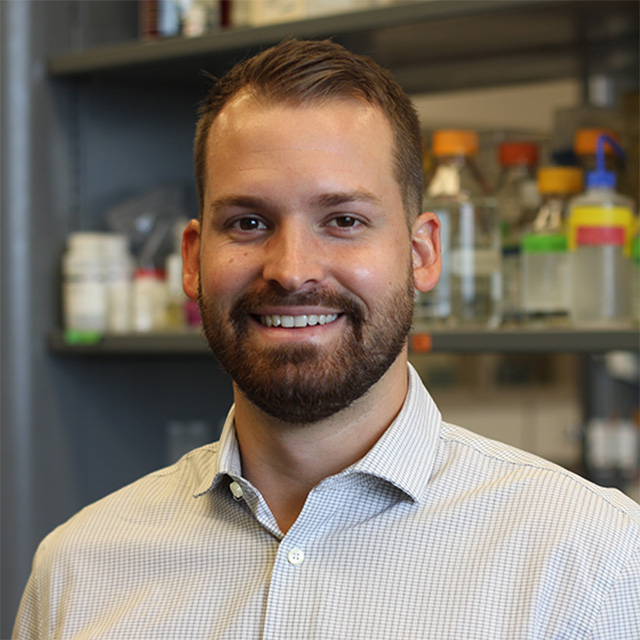Finding the right postdoctoral fellowship—stay or go?
Upon finishing high school Nick Fischer was torn between two interests. An avid musician—he plays the accordion, piano and guitar—Fischer seriously considered studying music. He instead chose his other interest, science, knowing that music would always be part of his life. Fast forward a decade and Fischer, who is wrapping up his PhD in the lab of Sunnybrook Research Institute (SRI) senior scientist Dr. Jean Gariépy, faced another dilemma. In pursuit of his goal of running his own lab, he plans to do postdoctoral research. The question is: where?
“Leaving to go somewhere new and gain international experience is really good for one’s career. It shows you can work in different places, pick up new skills and work with different people,” says the 28-year-old, who defends his thesis at the end of 2017. While searching for opportunities in the U.S., however, Fischer was offered a postdoc with Dr. David Malkin, a clinician-scientist specializing in cancer genetics at SickKids Research Institute. Fischer accepted the offer because it is a good opportunity. Malkin, in turn, supports Fischer’s intention to gain further training outside Canada.
Here, Fischer talks with Alisa Kim about his research, what he is looking for in a postdoc and why his next position is a good stepping stone to becoming an independent researcher.
What is your PhD on?
It’s on the tumour-suppressor protein p53. It’s mutated in up to 60% of all cancers. This protein oversees control of cell growth and cell division; if your cell’s damaged, it makes the decision to either repair the damage or commit suicide.
My thesis is on the functional effects of mutations in the p53 gene and the clinical consequences of them in cancer. I focused on the oligomerization of p53—the LEGO-like ability of p53 to interact with itself to form units that we call dimers (two p53 molecules) or tetramers (four p53 molecules). When any cell of your body is stressed out or damaged, p53 will form tetramers—the fully active form of the gene—then it can do its signalling cascade and kill the cell. If there’s only one of them, called a monomer, it’s inactive; that’s what we found. If there are two p53 molecules, called a dimer, it can stop cell growth, but it can’t kill the cell. We discovered that the structural form of p53 in cancer patients is a predictor of survival.
What are your main considerations in searching for a postdoc?
Finding a good institution and a city I like. There are large biotech centres in Boston and California with both academic and industrial research opportunities.
I also think it’s important to have a good relationship with your supervisor. Before I go anywhere to do a postdoc, I want to make sure I sit down with the professor and really get to know them and the lab members. I want to see everything is functioning well.
What are some of the challenges?
When you’re graduating, you’re trying to publish your last papers and going to conferences. I haven’t had time to look into things.
I’m just searching for whatever looks interesting to me, and there’s a lot that looks interesting. That’s the problem—there are almost too many options. I think I could go to many different labs, but will I be happy, fit in and like the project? It’s really trial and error.
Why did you accept the position at SickKids?
My PhD work doesn’t end with my defense. I have a lot of loose ends to tie up—projects I want to pursue. I hope that at SickKids I can finish these projects and have something that leads into a postdoc abroad. I’m always looking to get more tools in my ‘tool kit.’ At Dr. Malkin’s lab, they do more genomics work, and they’re working on CRISPR gene editing technologies, so I hope to learn some of that, too.
Did the last six years feel like it went by fast?
It did—really quickly. I like being here at SRI. I know everyone. I know what to do. That next step, the postdoc, is a bit worrisome, but exciting. I’m looking forward to a new project. That’s another consideration: do you stray from your current focus, or choose a new topic? Both can be beneficial. If you change fields, you have more diversity. If you stay in the same field, I see benefits to that too, because I’m kind of in this niche area.
What skills that you’ve acquired in Jean’s lab will you bring to your next position?
We do so many different types of experiments. We span chemistry, biochemistry, cell biology and immunology. I feel lucky to have worked in such a lab. We have really great instruments, like the surface plasmon resonance system. We study protein-protein interactions or DNA-protein interactions. I noticed in a posting for an industrial postdoc they were asking for students with experience with surface plasmon resonance. We’re one of the only labs in Toronto with [this machine]. I’m happy I have experience with that because that’s something most students don’t get.



